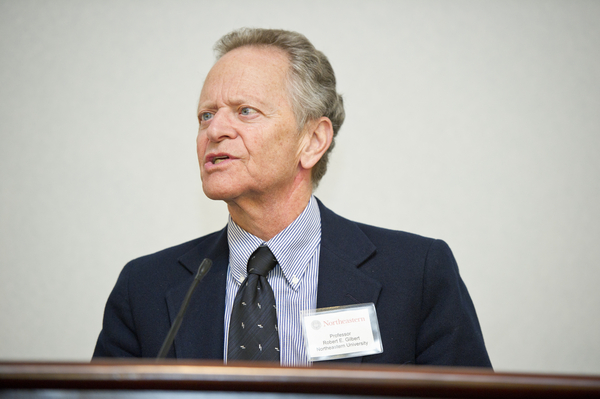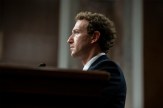3Qs: A perilous deal for the president

Earlier this week, President Obama signed a bill passed by Congress that would raise the debt ceiling and avoid default. The combative negotiations that preceded the deal, however, highlighted the deep political divide in Washington. We asked Robert Gilbert, the Edward W. Brooke Professor in Northeastern’s Department of Political Science, to examine the political climate in light of this deal, and what it means for the 2012 elections.
What does this deal say about the current political climate in Washington?
It sheds considerable light on the current political climate. The Democrats and Republicans diverge sharply from each other; the Republican Party has a dissident group within its ranks that is intransigent and combative. Politics is based on the art of compromise. The appearance of the Tea Party Movement three years ago represents a major problem for both Democrats and Republicans because its adherents reject compromise and demand getting their way.
How did debt-ceiling negotiations reflect on the President? Did he come off looking weak for making compromises, or did he merely do what was necessary to avoid a default?
The President looked strong in mid-July but then generally weakened. The consensus view now is that the Republicans got much more of what they wanted than the Democrats did. This is reflected in the recent House of Representatives vote where Republicans heavily supported (174-66) the “compromise” plan while the Democrats were evenly divided (95-95).
At present, the Democrats control the executive branch and one house (the Senate) of the legislative branch. The Republicans control one house (the House of Representatives) of the legislative branch. How, then, did Republicans come away from the table reasonably energized while Democrats came away thoroughly demoralized?
How will the debt ceiling deal — including the spending cuts — factor into the national political debate as the 2012 elections approach?
This episode might well factor into the national political debate next year in several ways. First, President Obama has a dynamic speaking style, but he seems averse to confrontation. He is emerging as a stoical, rather than a transformative, leader. The economy is still struggling and many people are hurting. A bad economy — particularly one with high unemployment — is very dangerous to incumbent presidents. Yet the sharp reductions in government spending outlined by the “compromise” plan might well impede the economic recovery. In 2012, a key group may well be Hispanic Americans. Since 2005, the median wealth of this group declined by more than 60 percent. Hispanics might not vote Republican next year, but will they vote at all?





